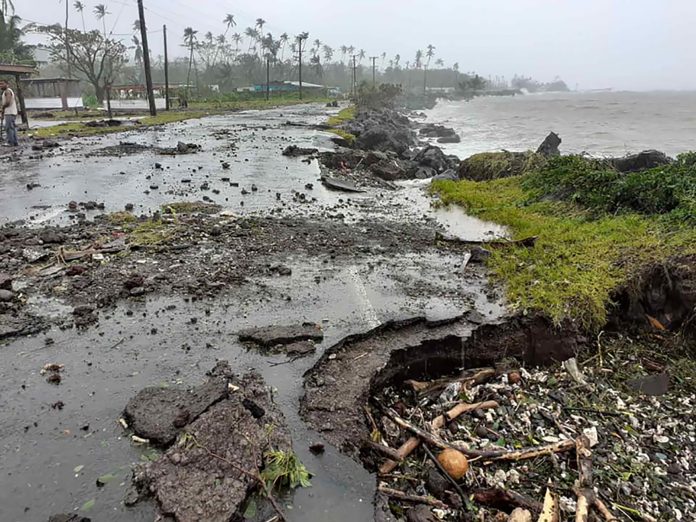The latest report from the United Nations’ Intergovernmental Panel on Climate Change has prompted one of the co-authors to warn that it represents a looming line in the sand for the Pacific.
Without further reductions in emissions before 2050, the IPCC’s vice chair, Professor Mark Howden, says the world is likely to exceed warming of two degrees Celsius before the end of the century.
The report suggests that will mean dramatic and devastating sea level rise, and fewer, but more intense cyclones across the Pacific islands.
But Professor Howden who is also the Director of the Institute for Climate, Energy and Disaster Solutions at the Australian National University, has told Pacific Beat the report also contains good news, in the sense that it explains very clearly what we need to do to avoid really problematic consequences for the Pacific.
“If we actually get our act together and go into one of the low emission pathways, then in fact things can be reversed. And so we might get a gentle increase in temperatures over the 1.5 mark, but then that starts to come back down.”
But in the meantime the IPCC report identifies the potential for what the scientists call compound impacts, when there are two separate types of changes in the climate system which when added together can make things worse, and these include cyclones.
For example Professor Howden says if you’ve actually got an increase in sea level, so the average sea level has gone up, damage to your coast is likely to increase and new risk of storm surge is also likely to increase, when a cyclone strikes.
“I think that’s part of the report; it’s actually starting to look at climate hazards as a set, rather than individually.”
The broad concern now of the scientists who compile the IPCC report, is that the targets on emissions reductions agreed in Paris six years ago may very soon be unachievable.
“That is a very real risk, that we won’t be able to stick with the Paris Agreement temperature goals,” said Professor Howden.
“And so we do acknowledge that in terms of the Pacific Islands, that’s a real part of the injustice that they feel in relation to this whole issue, that they’ve produced very few of the greenhouse gas emissions that are causing this problem, but they suffer the consequences.”
“And what this report does, I think, is it gives even more evidence and greater confidence for the argument that they’re likely to mount (at the UN climate talks) in Glasgow, for ramping up emissions reductions globally,” he said.
SOURCE: ABC/PACNEWS













